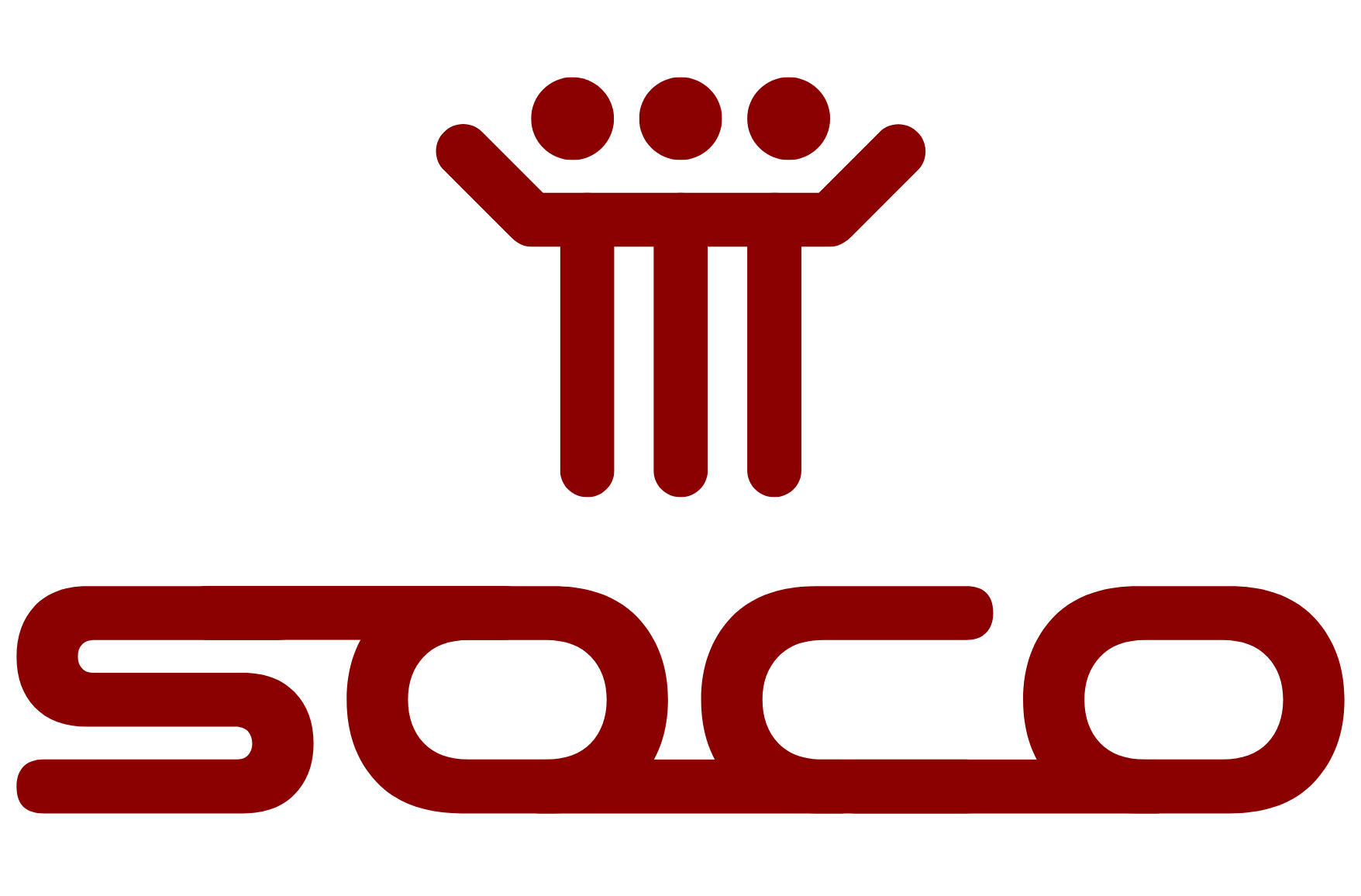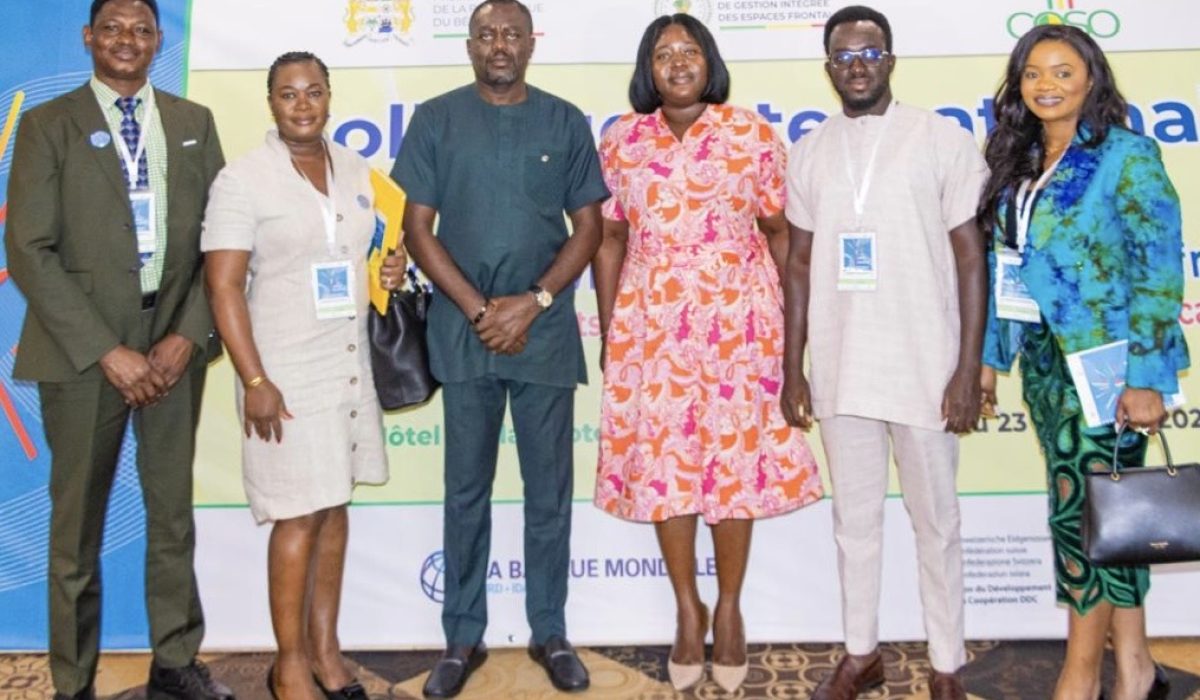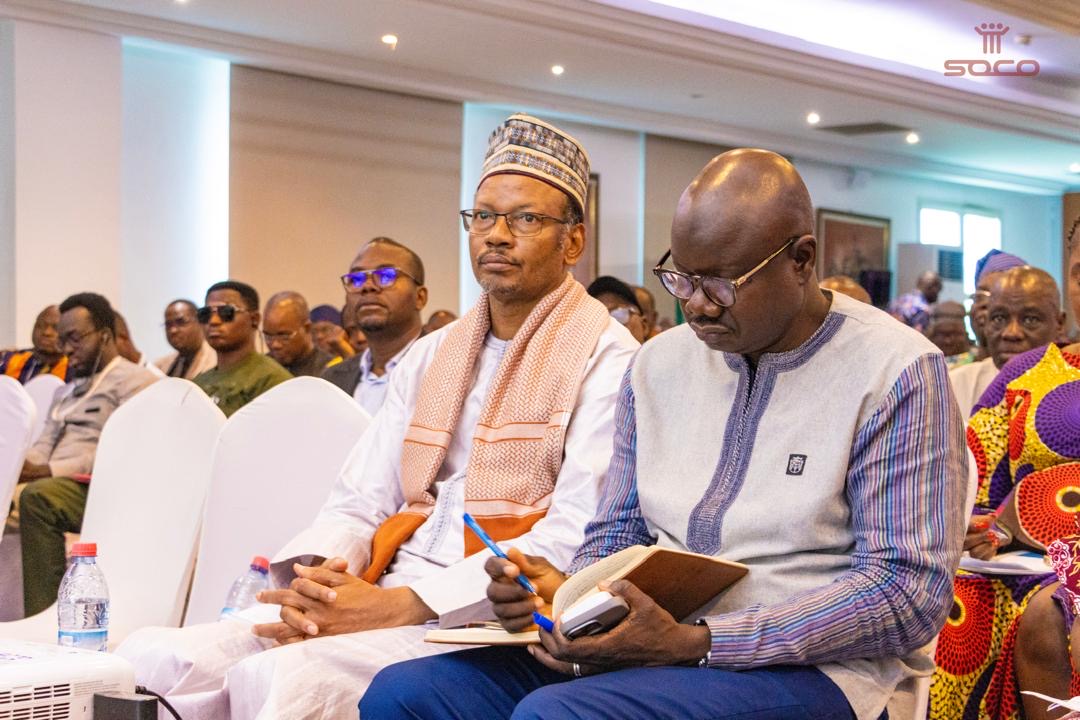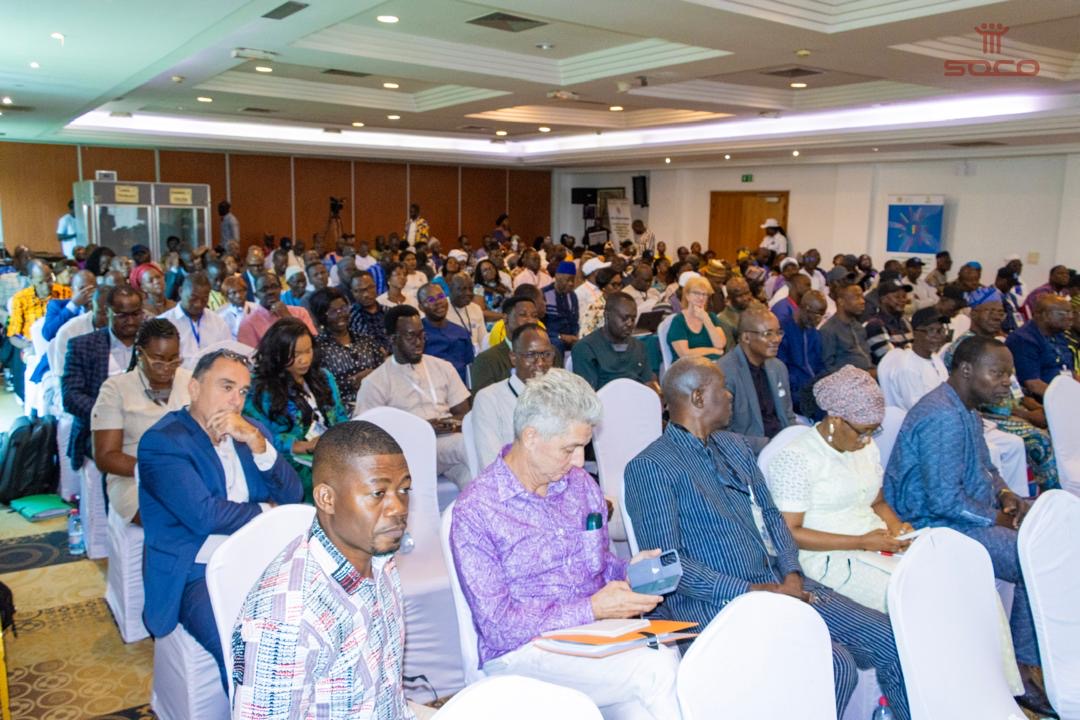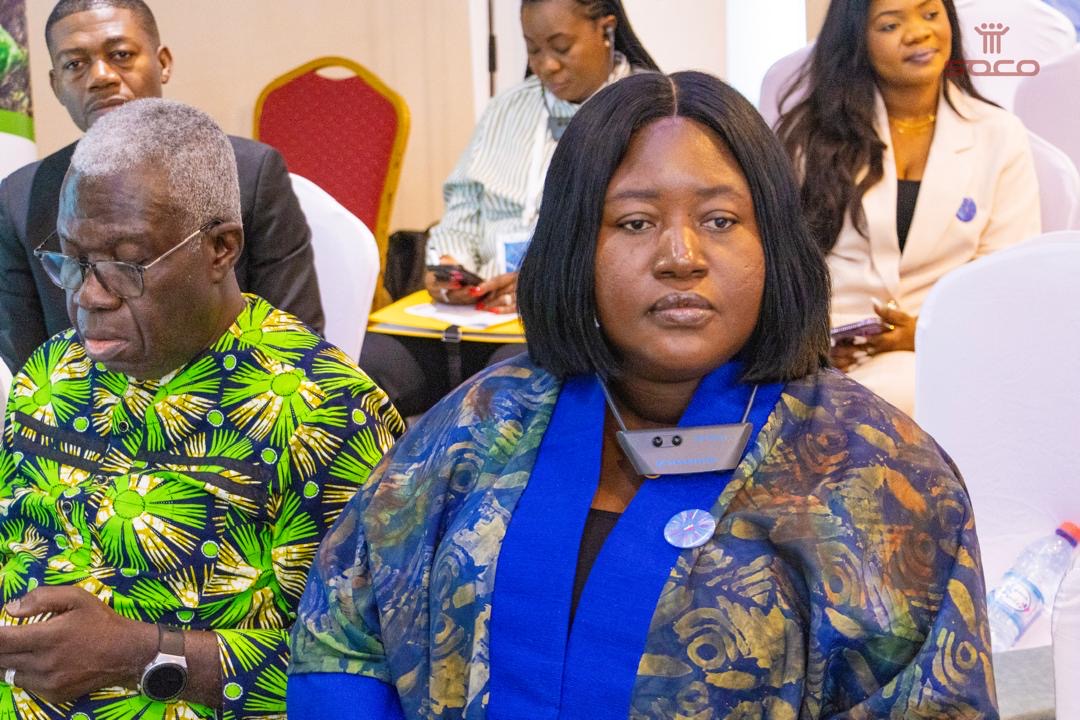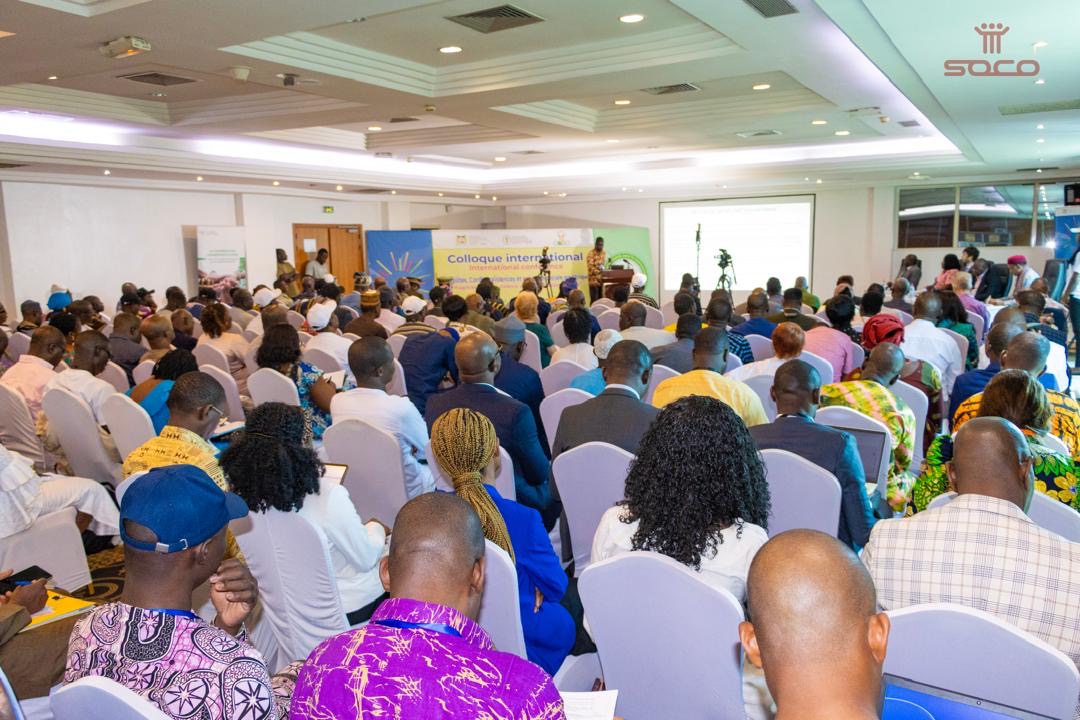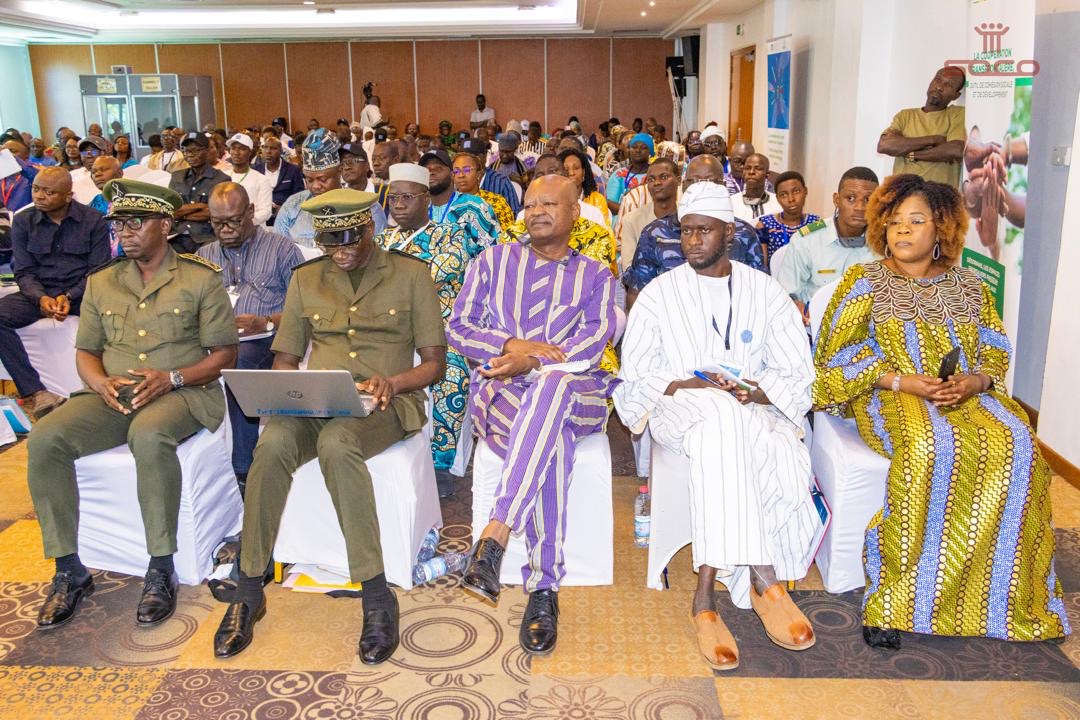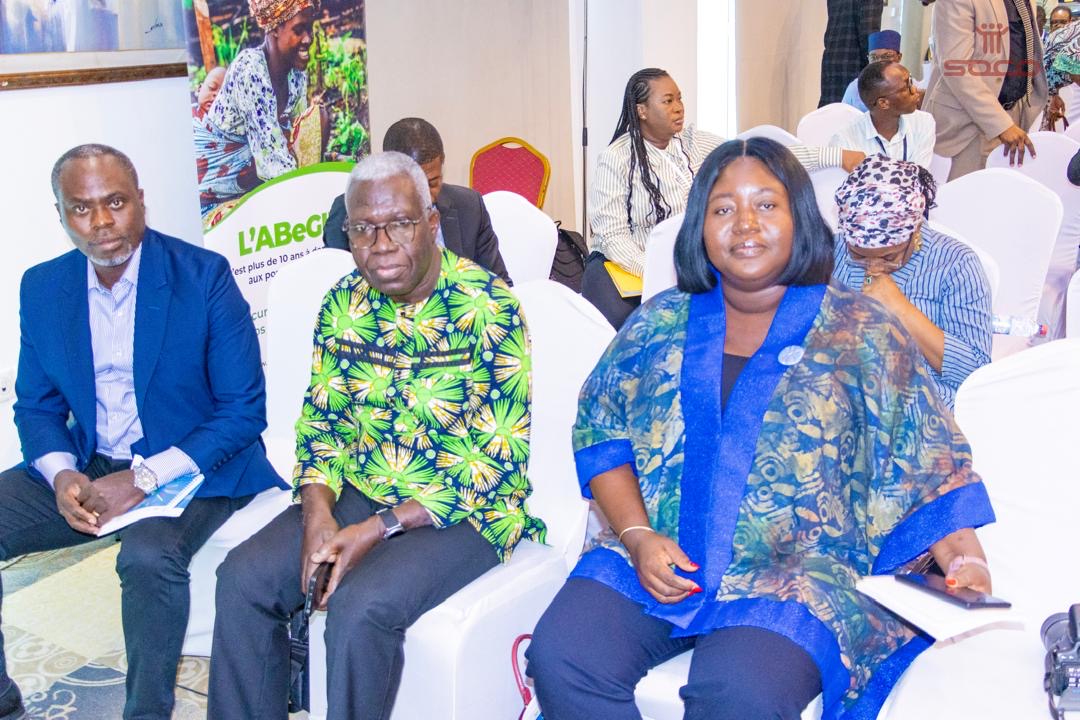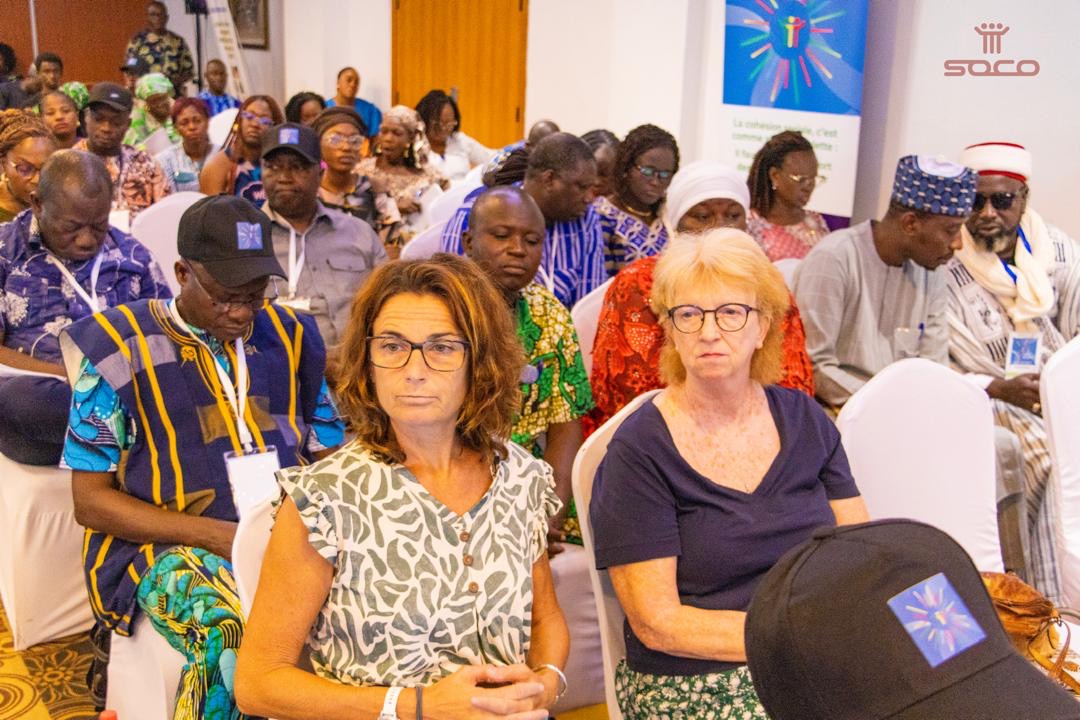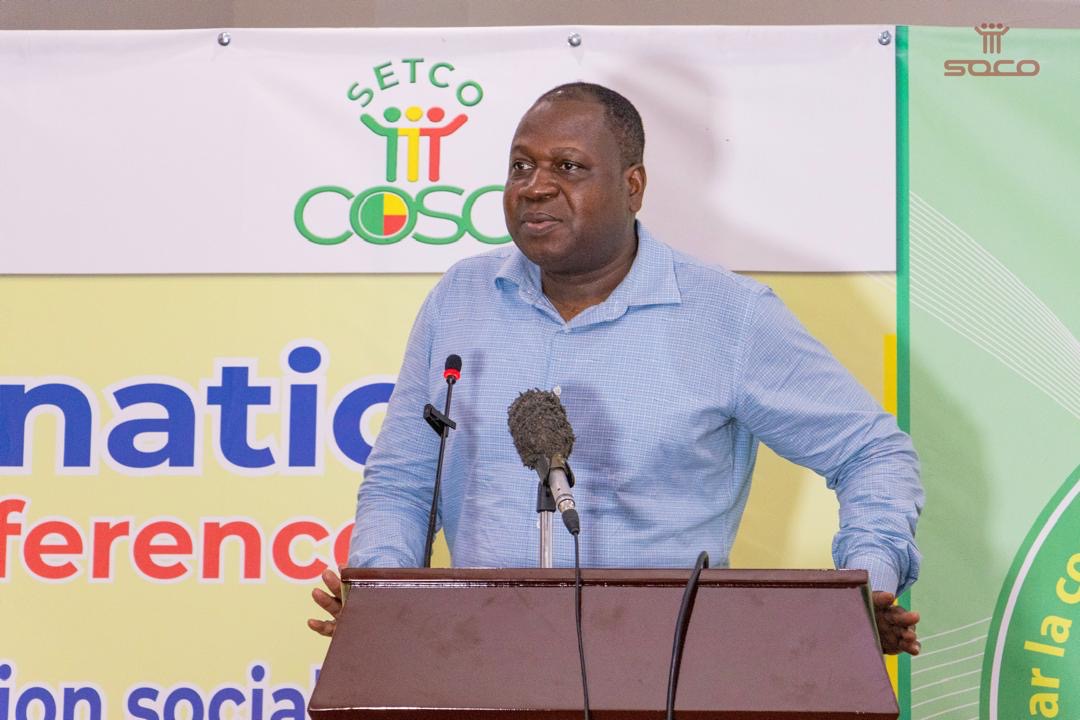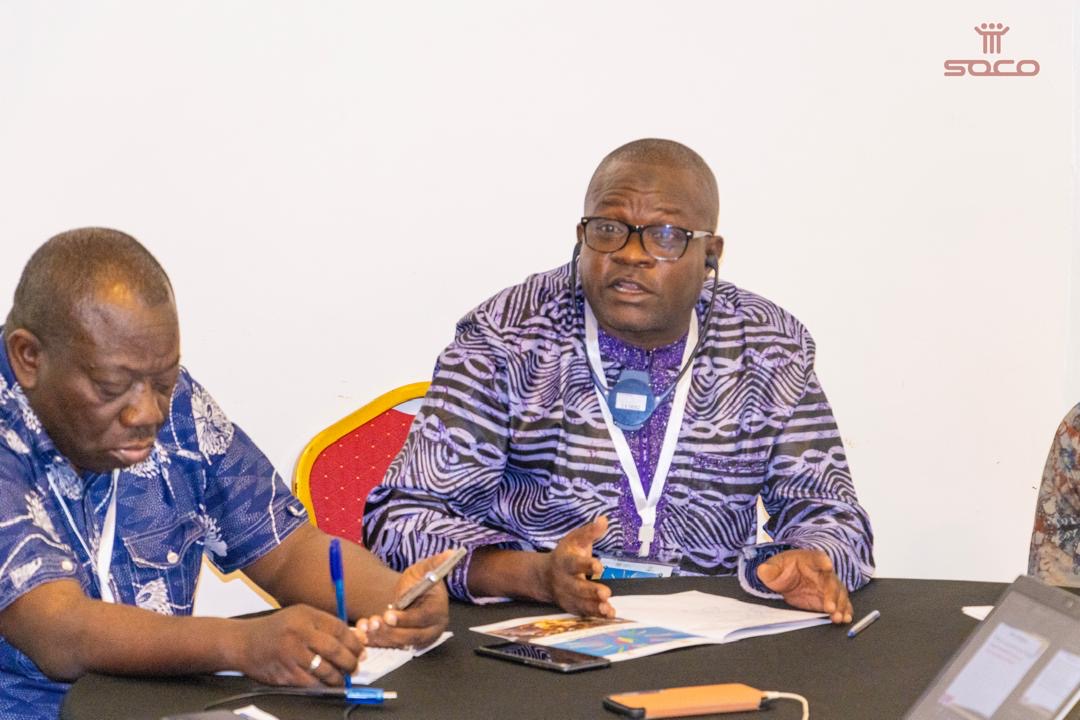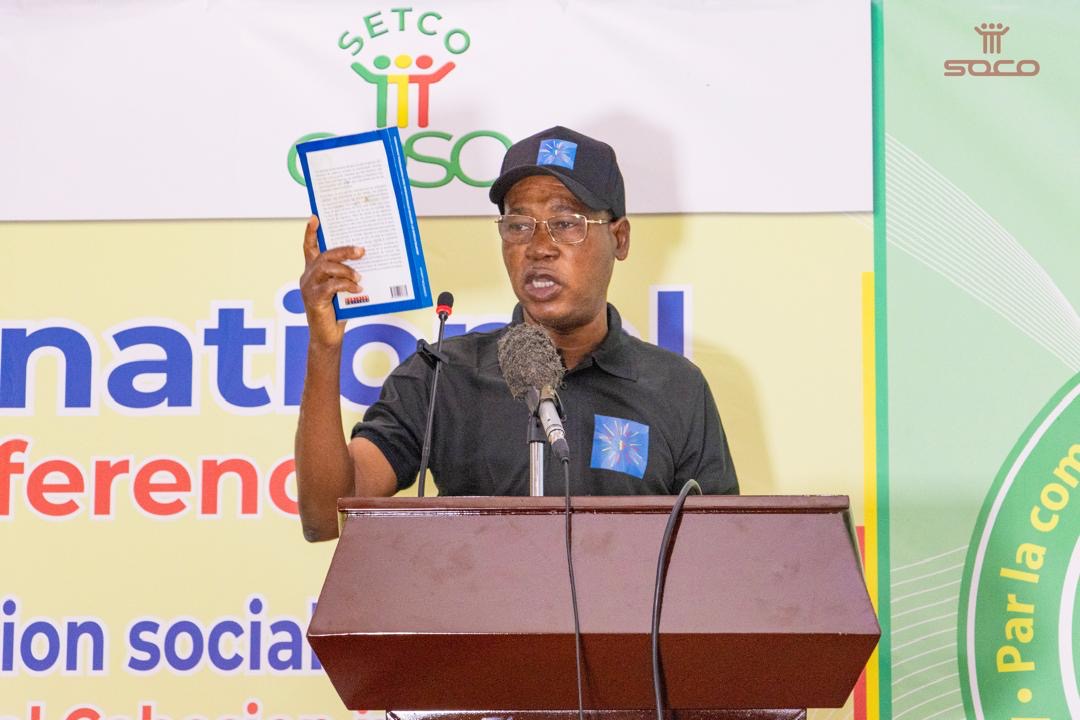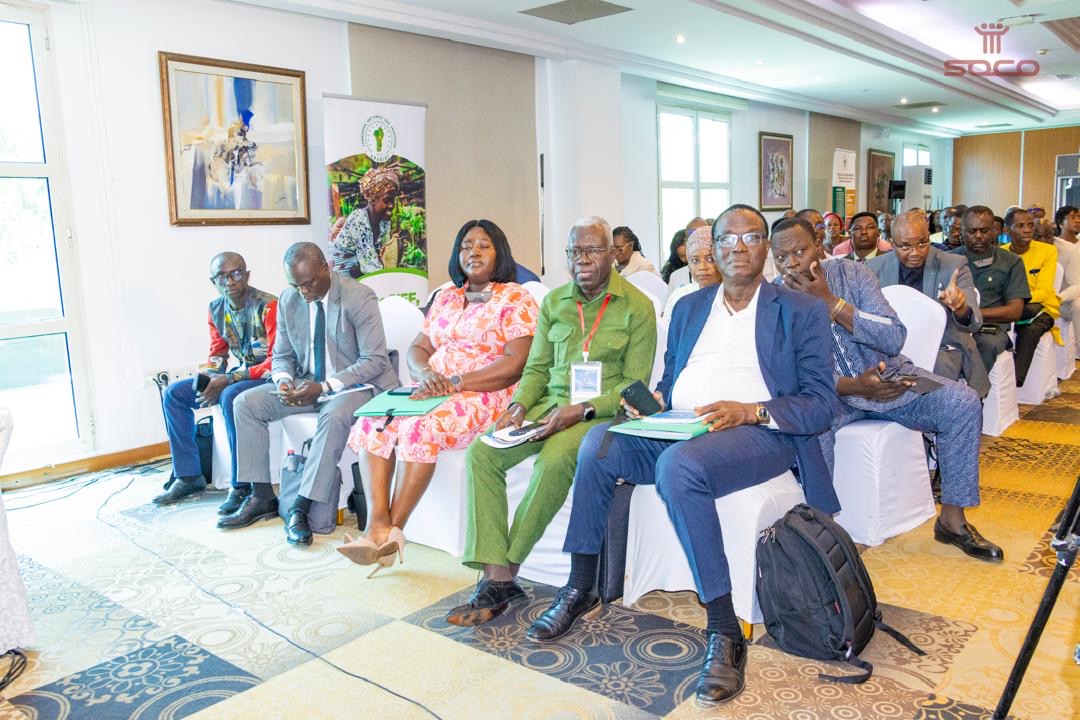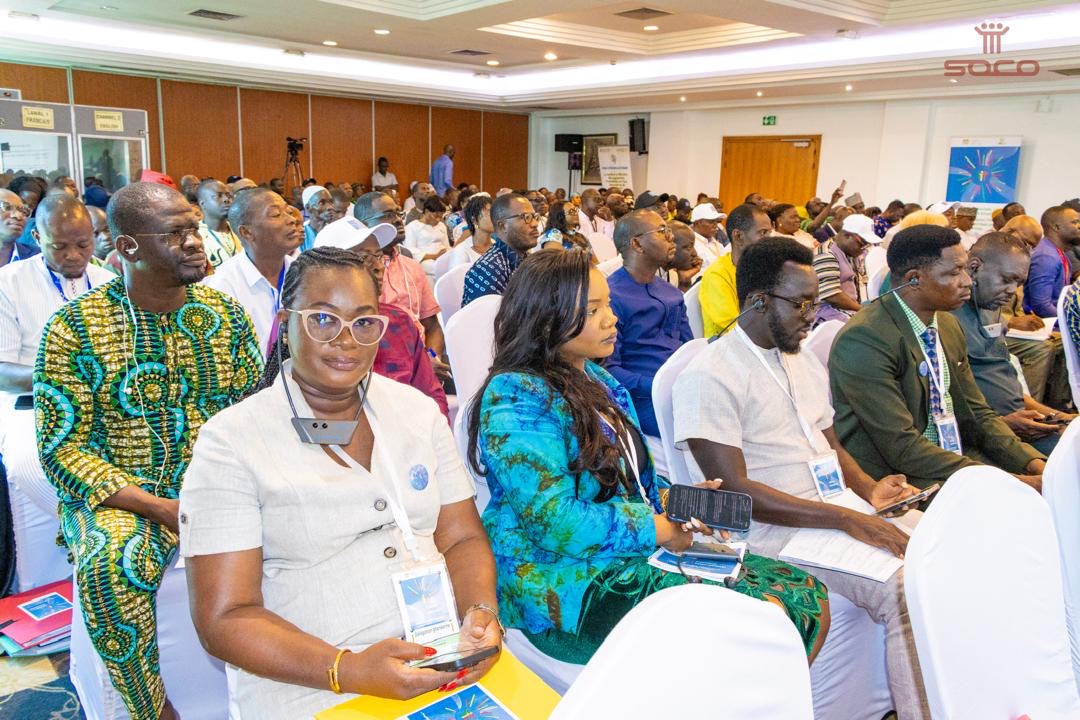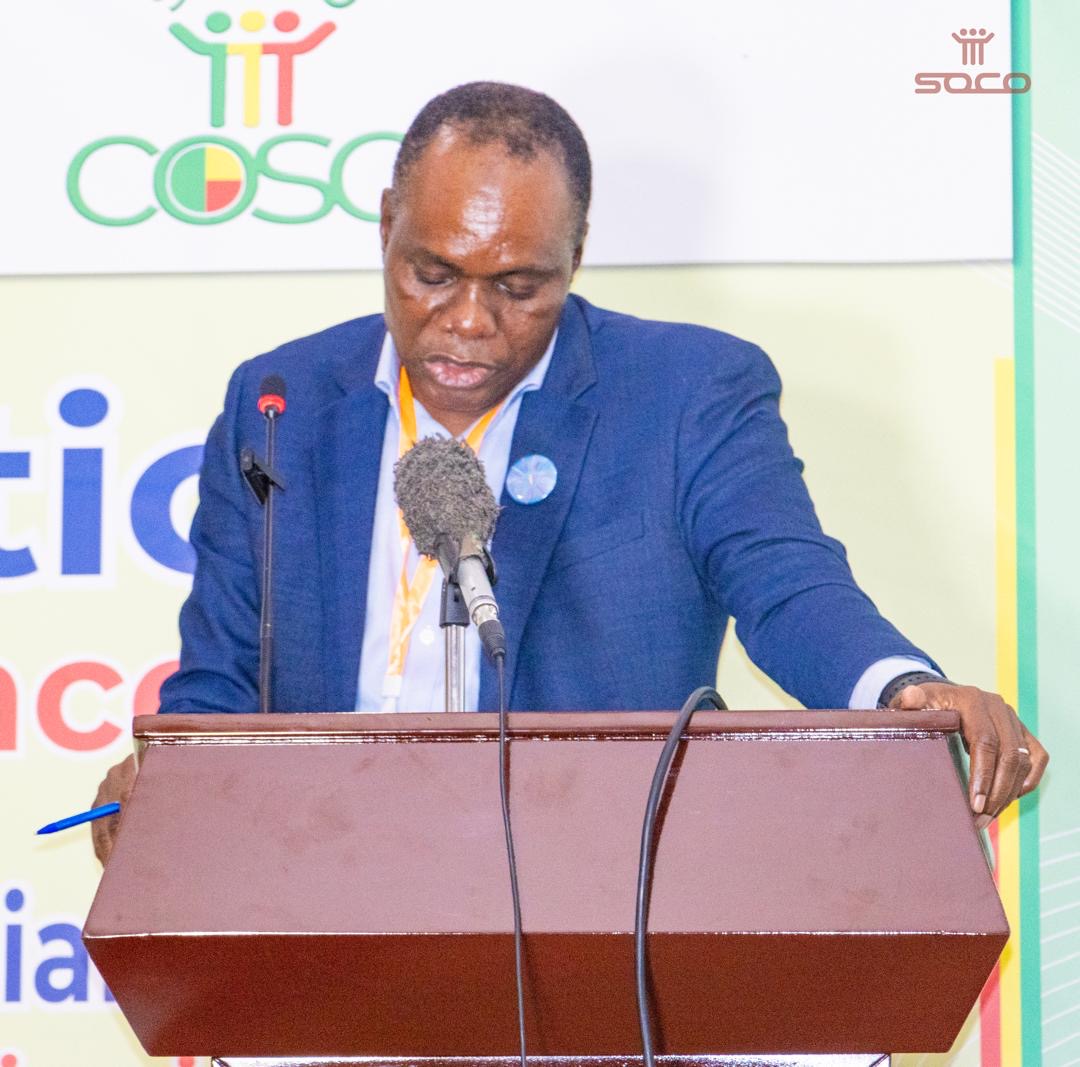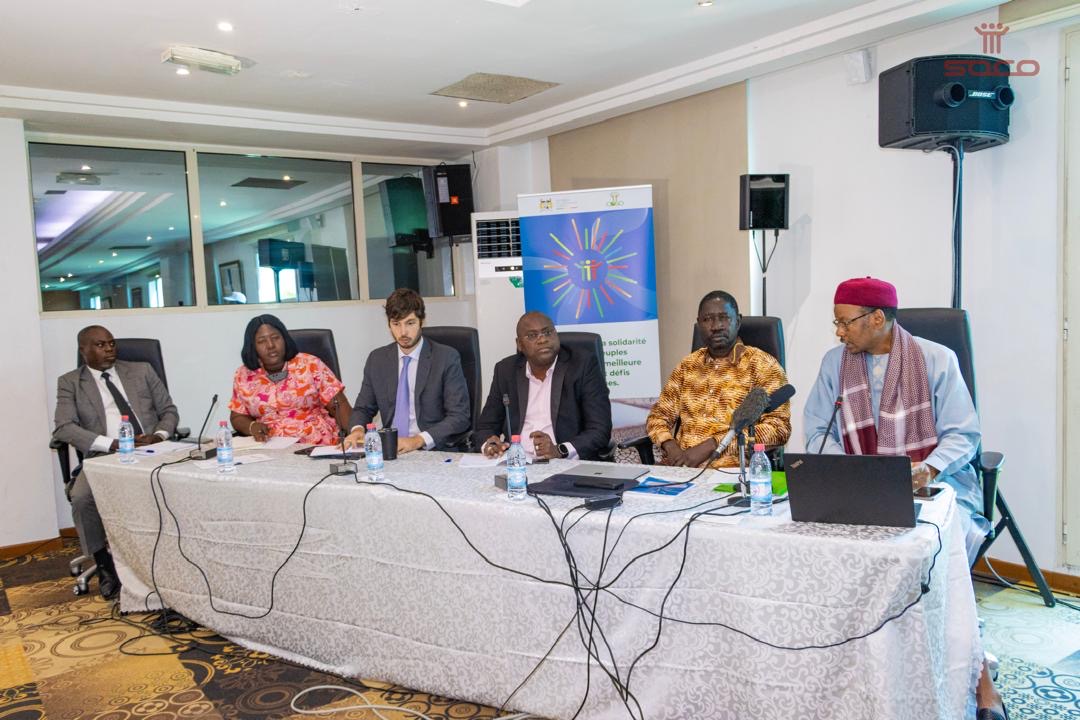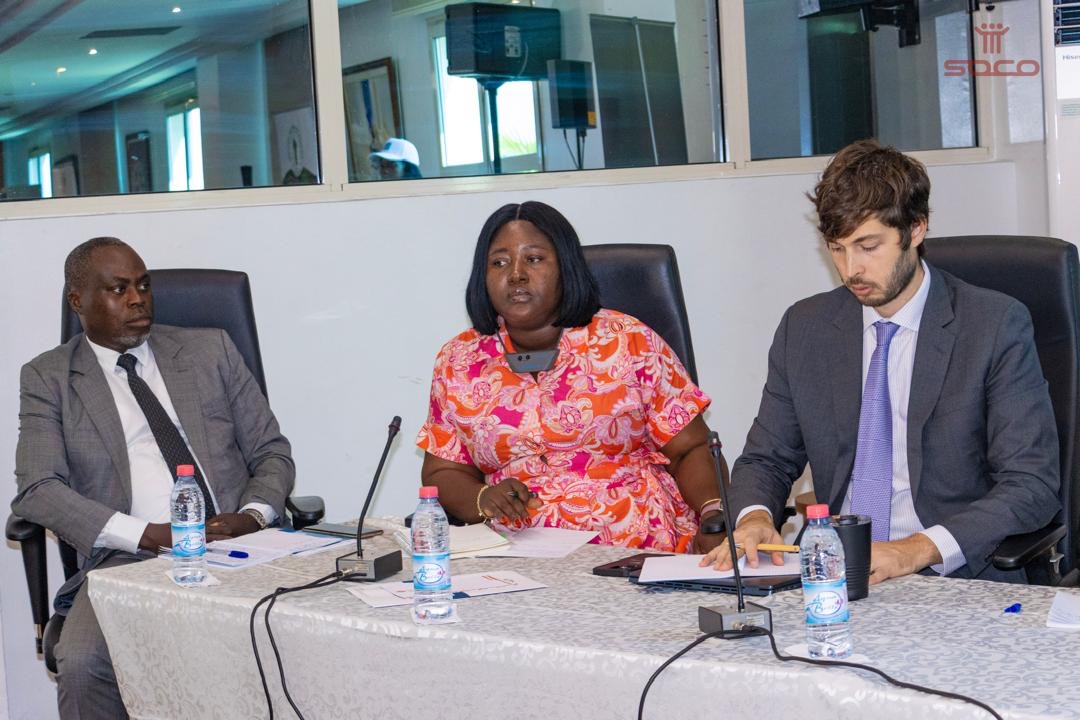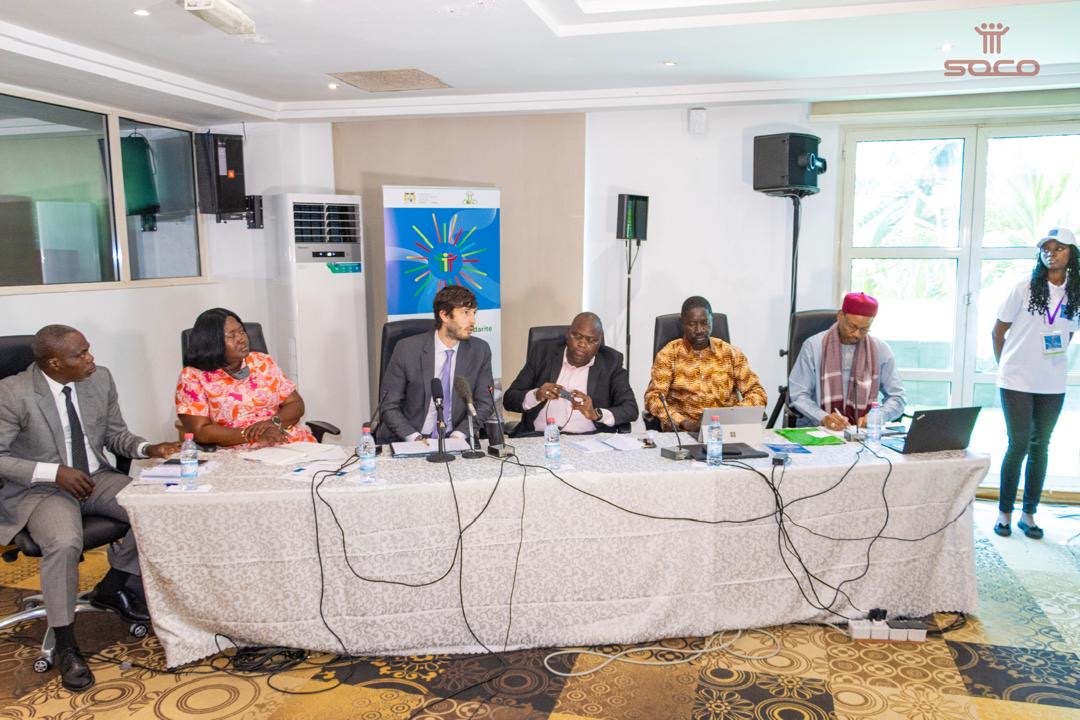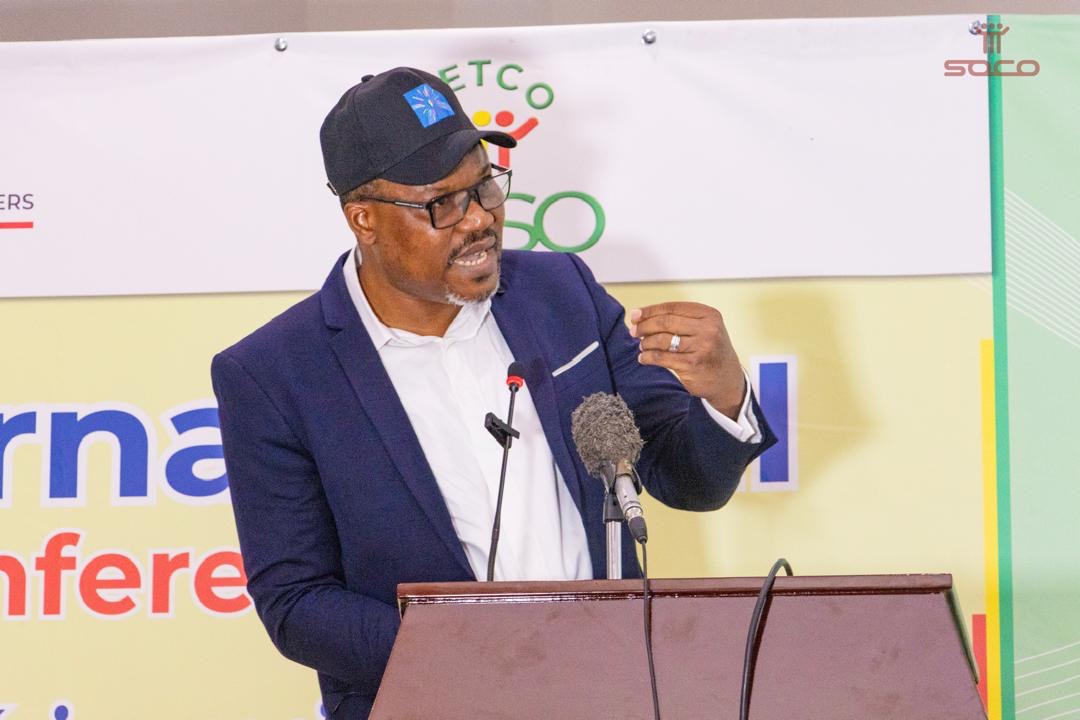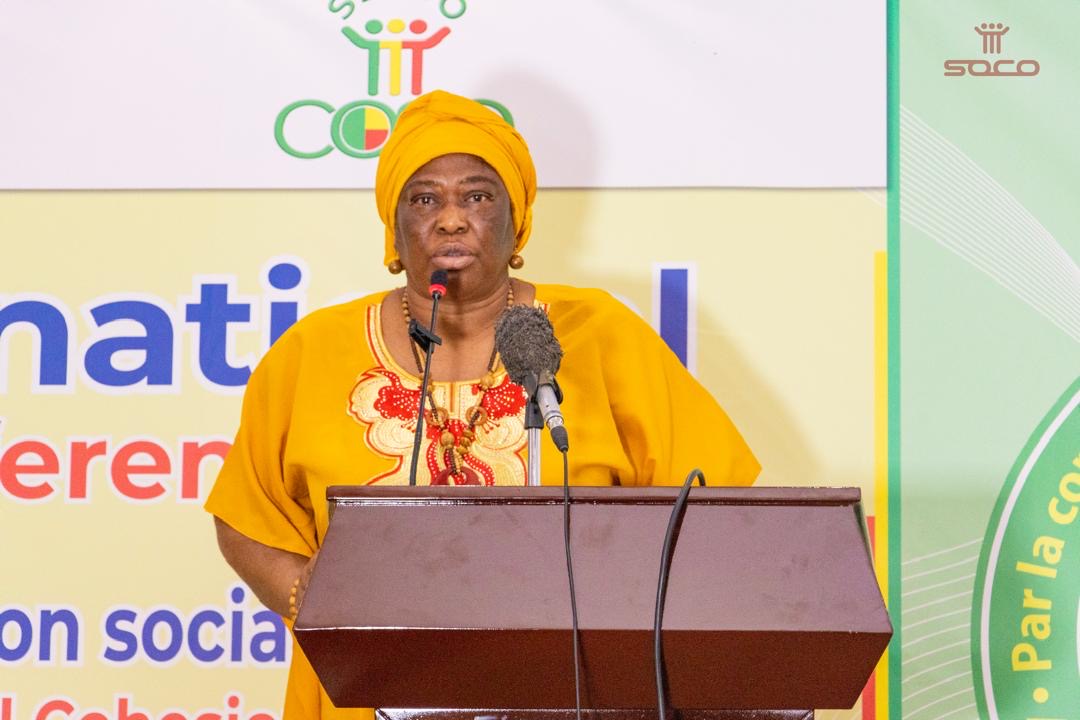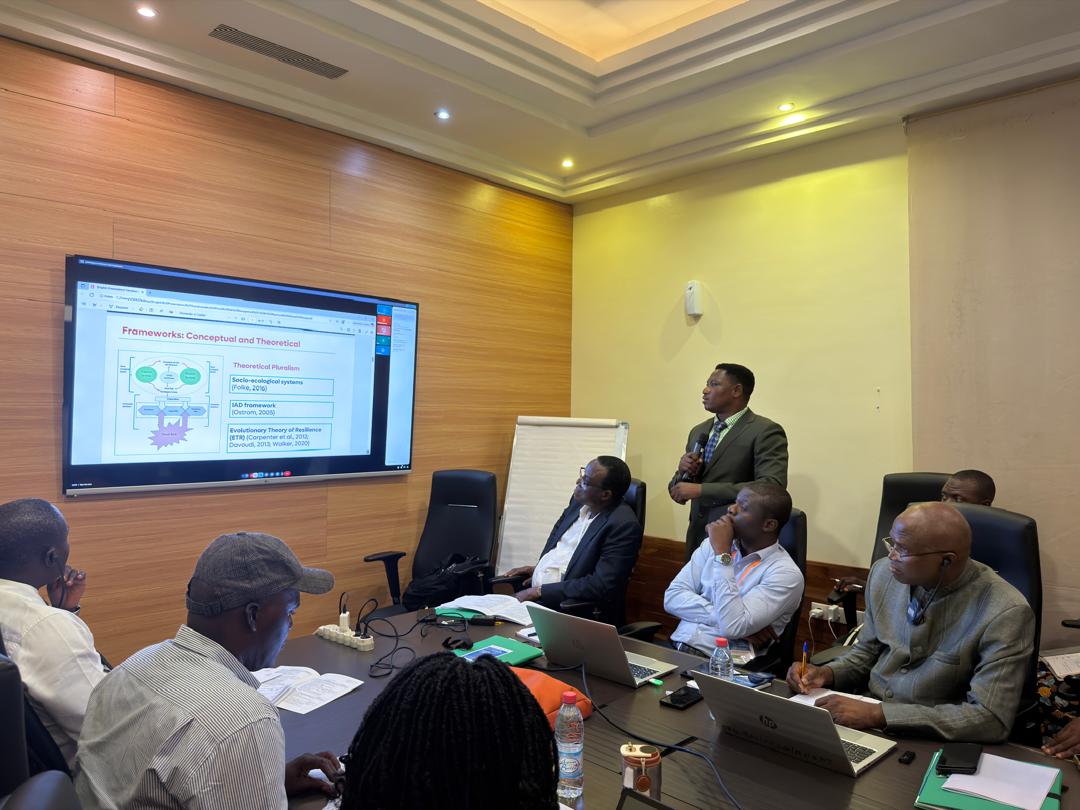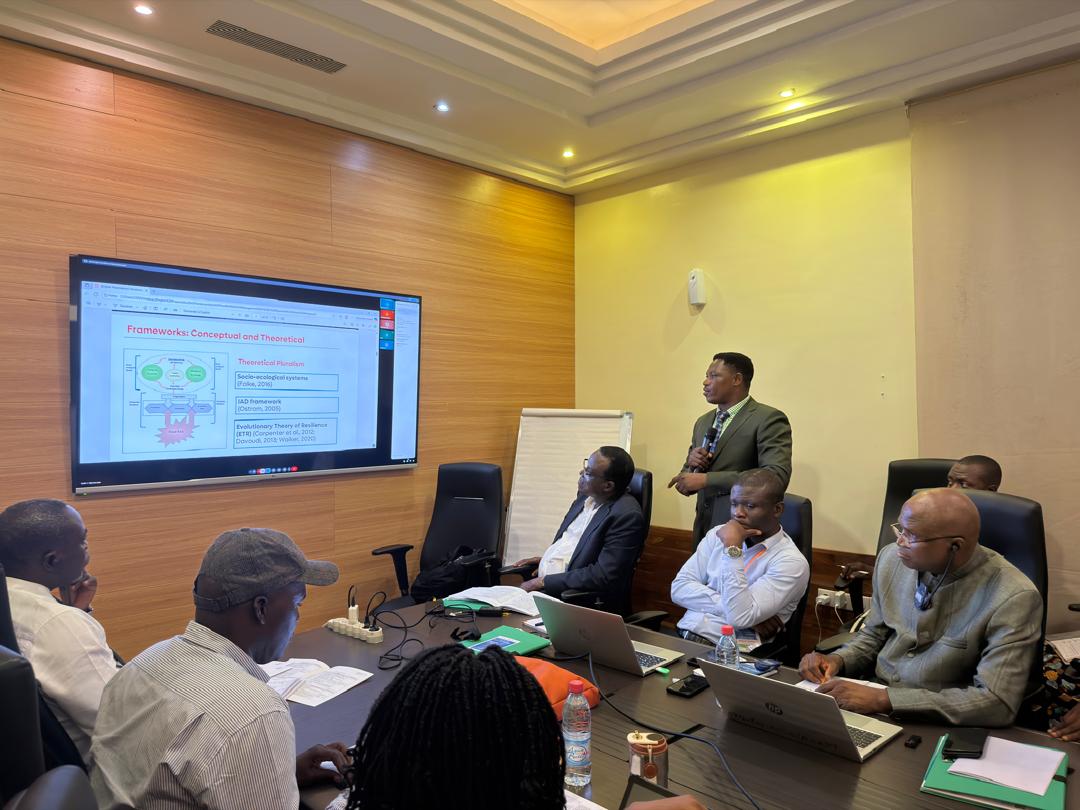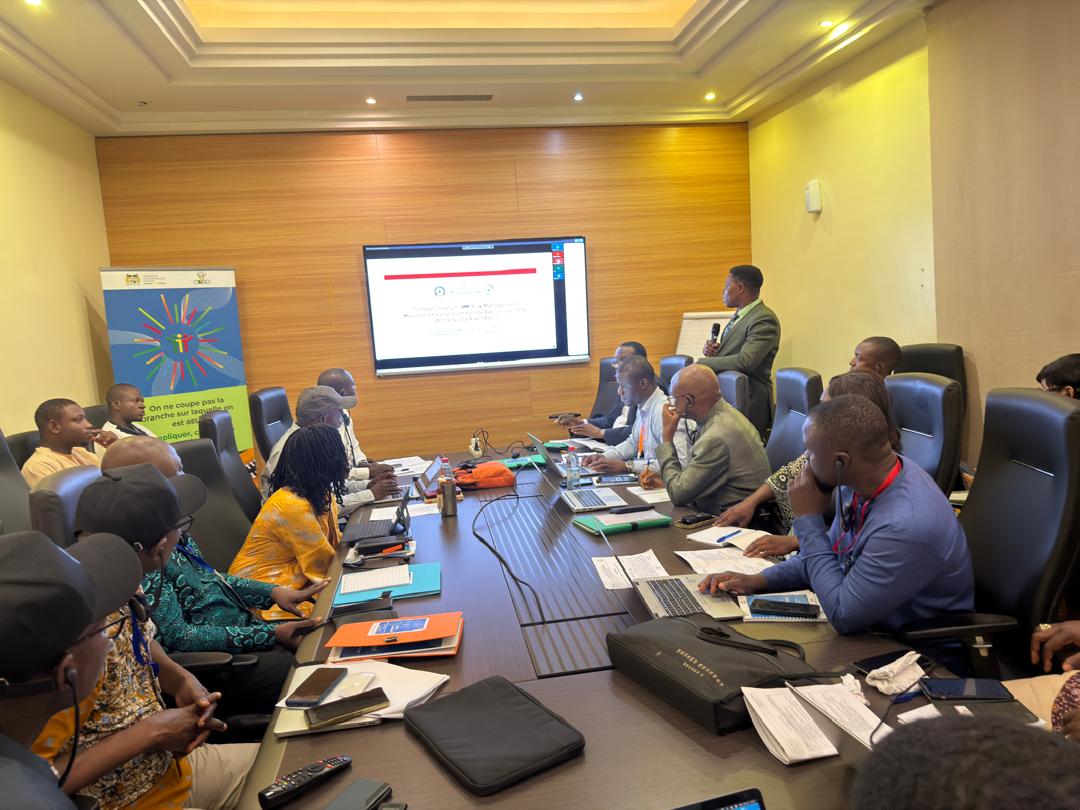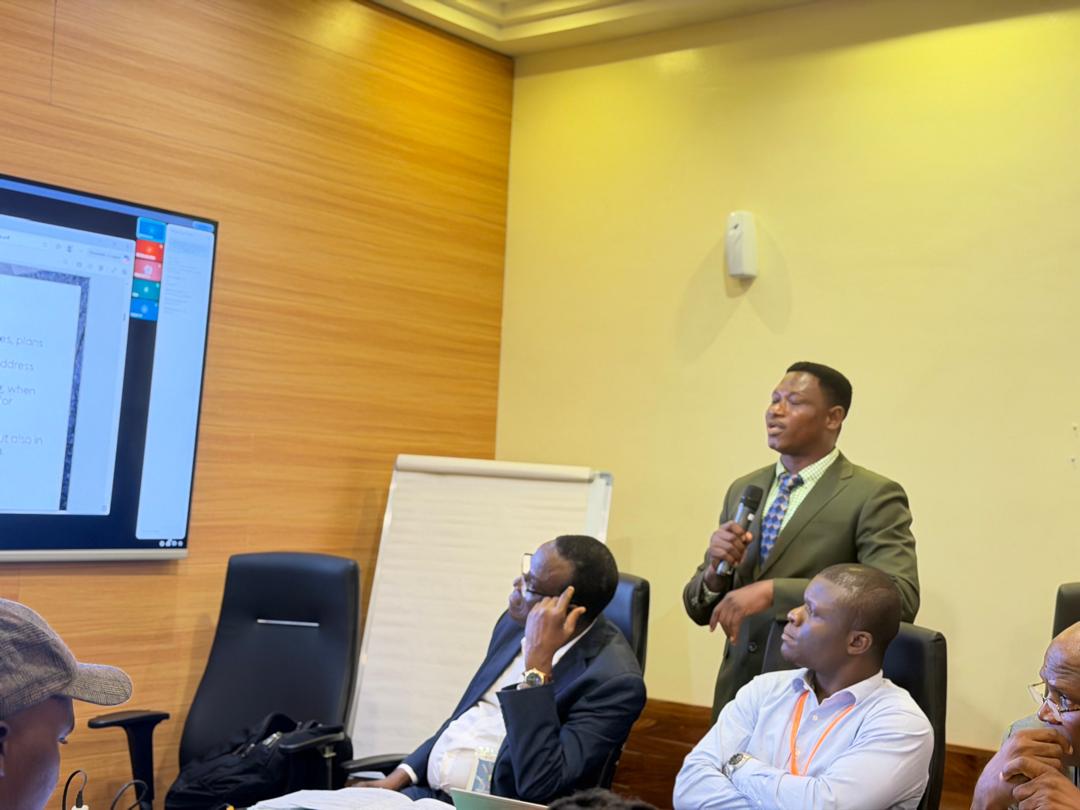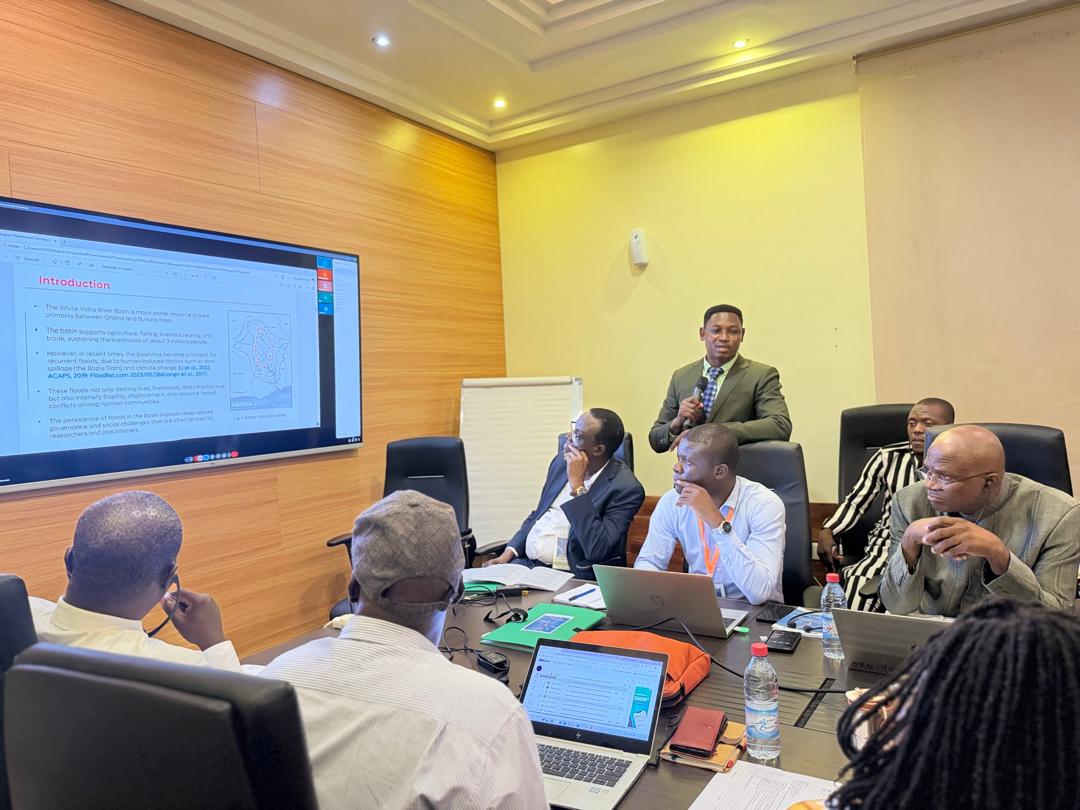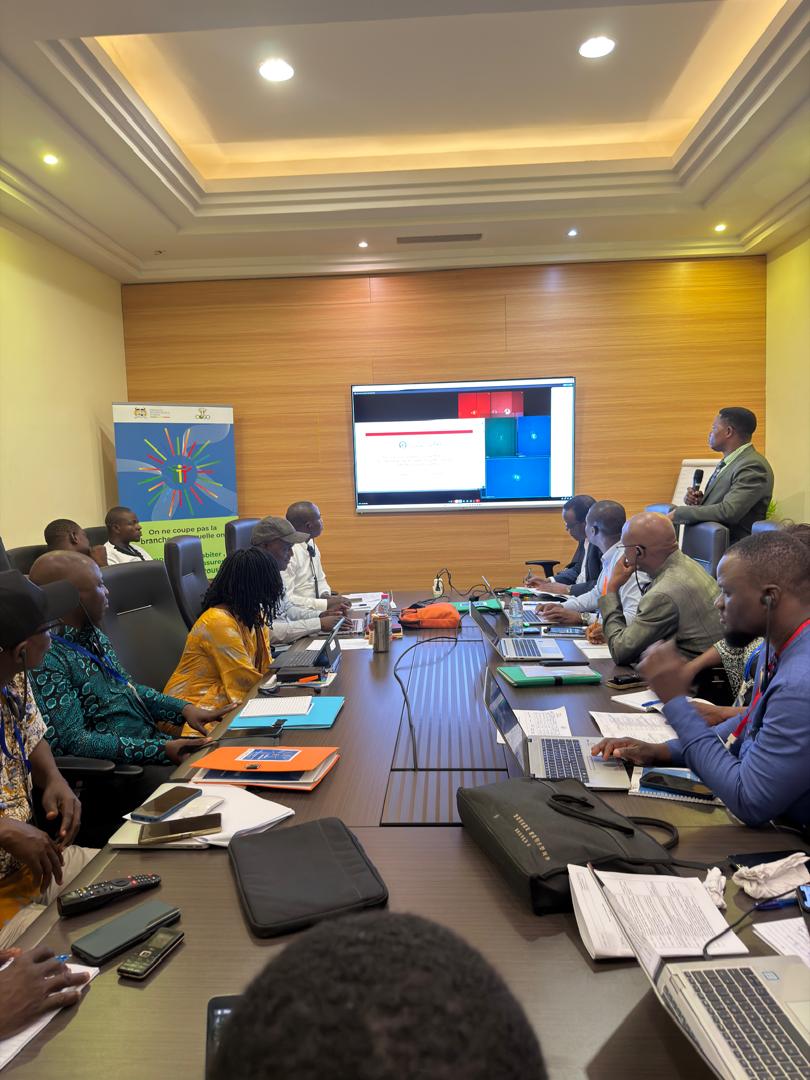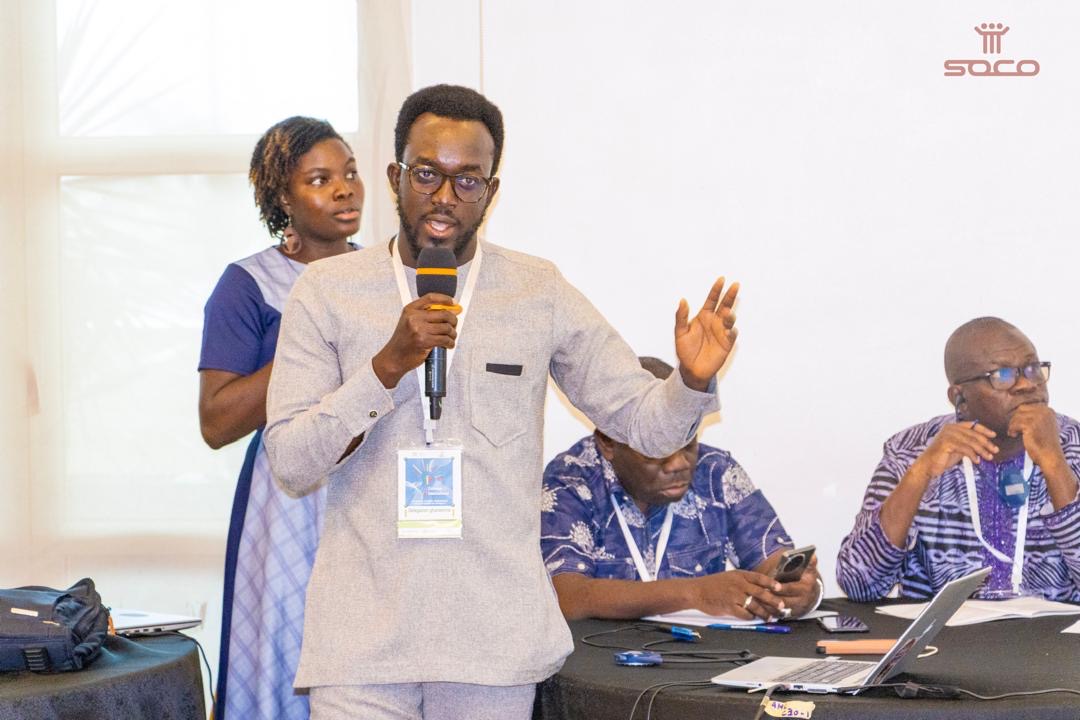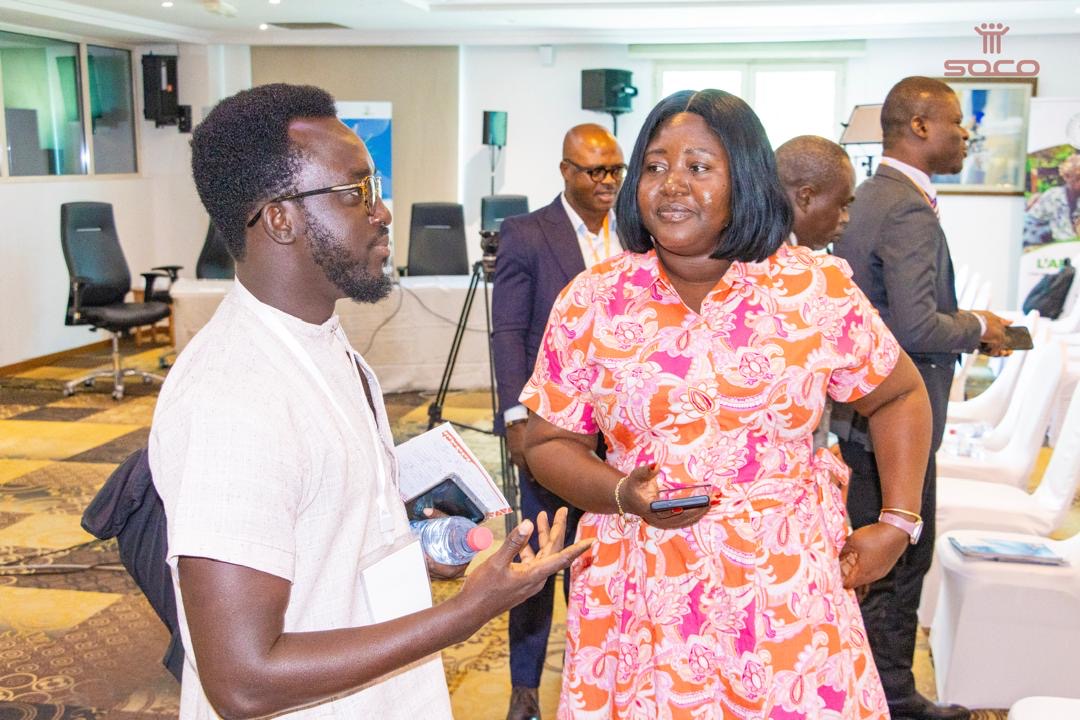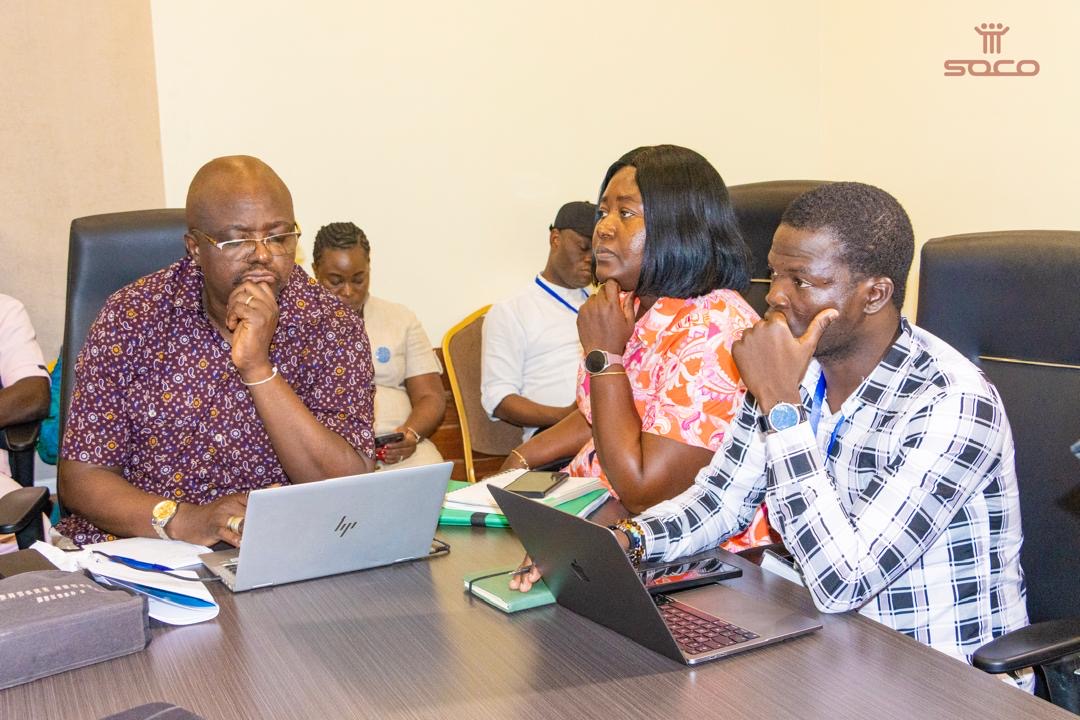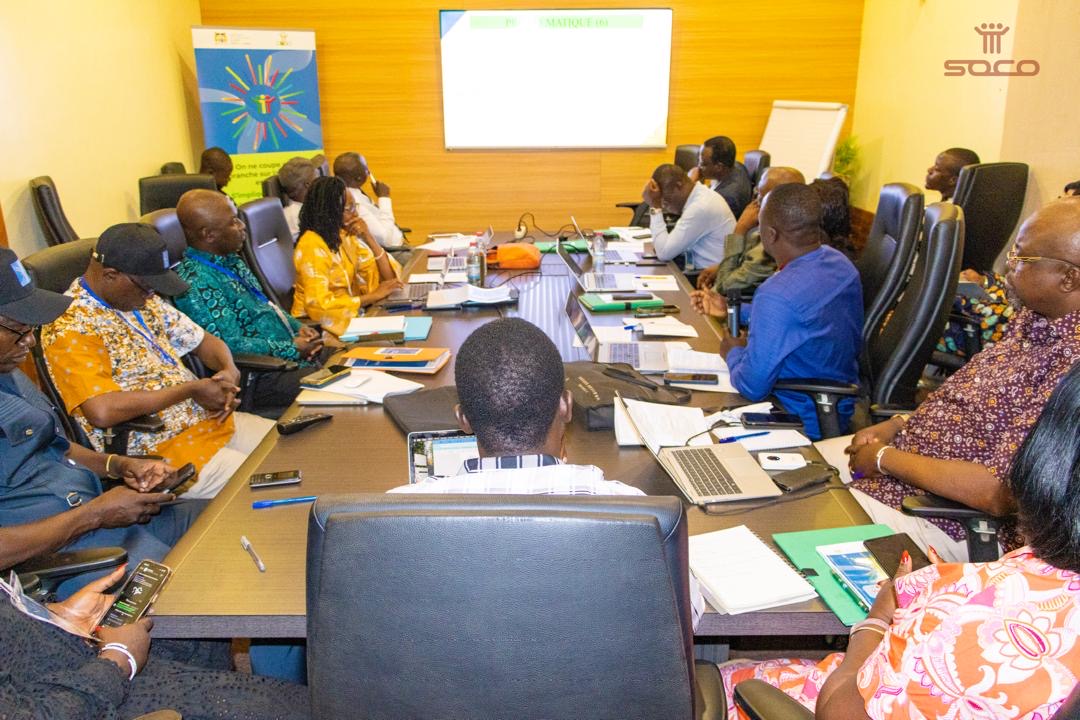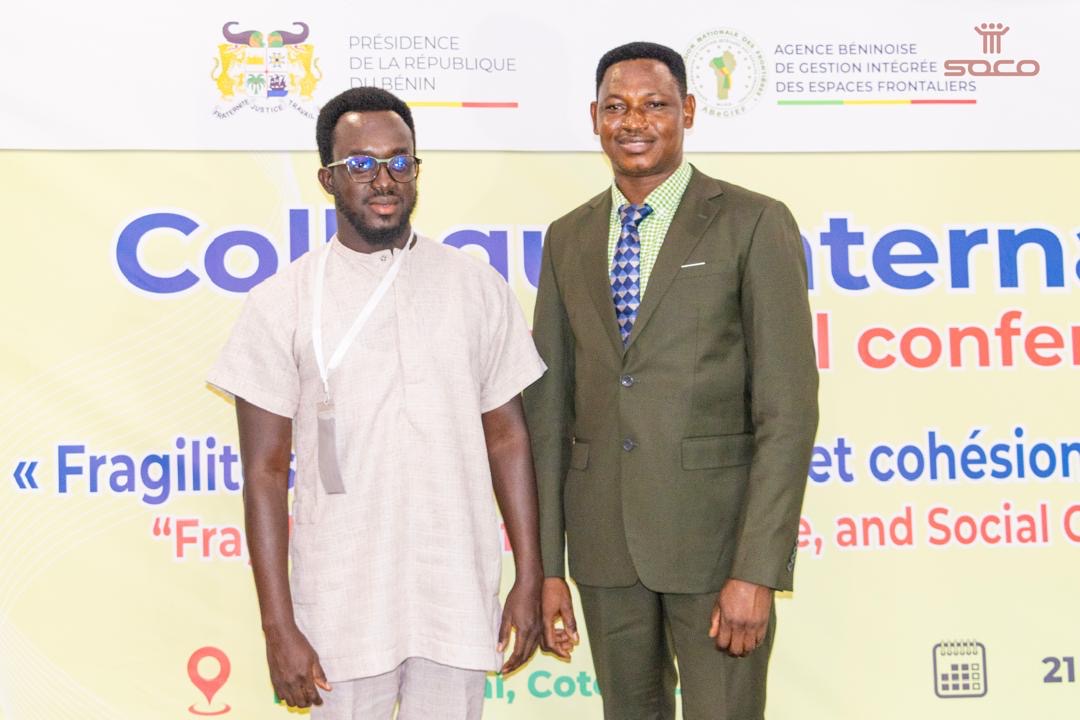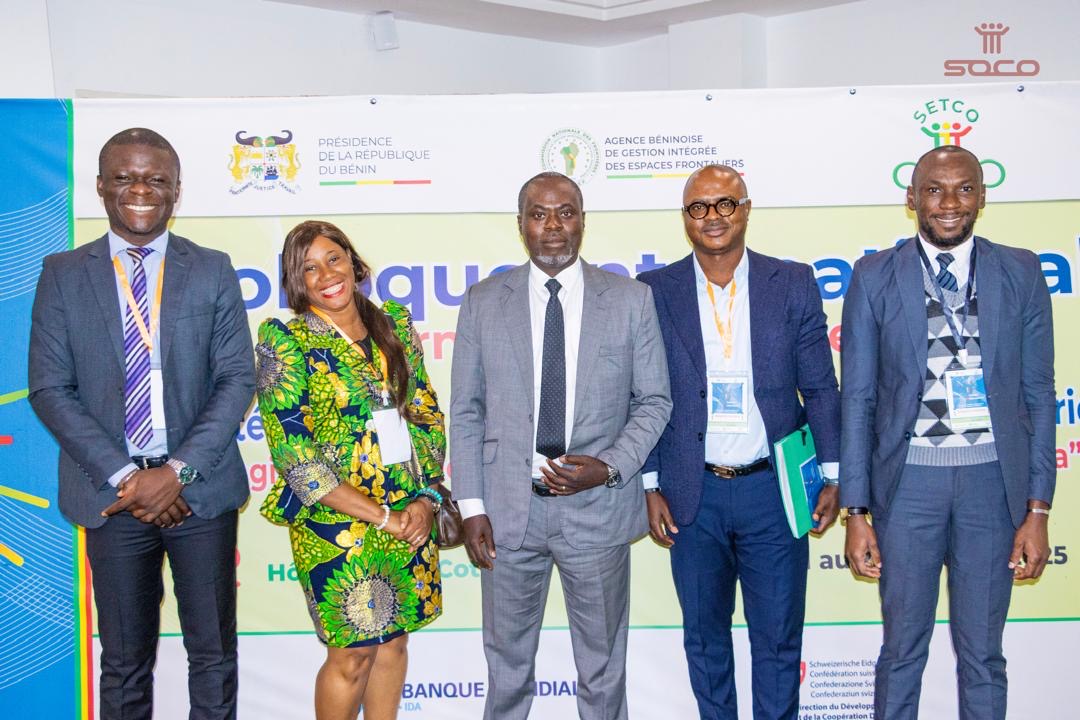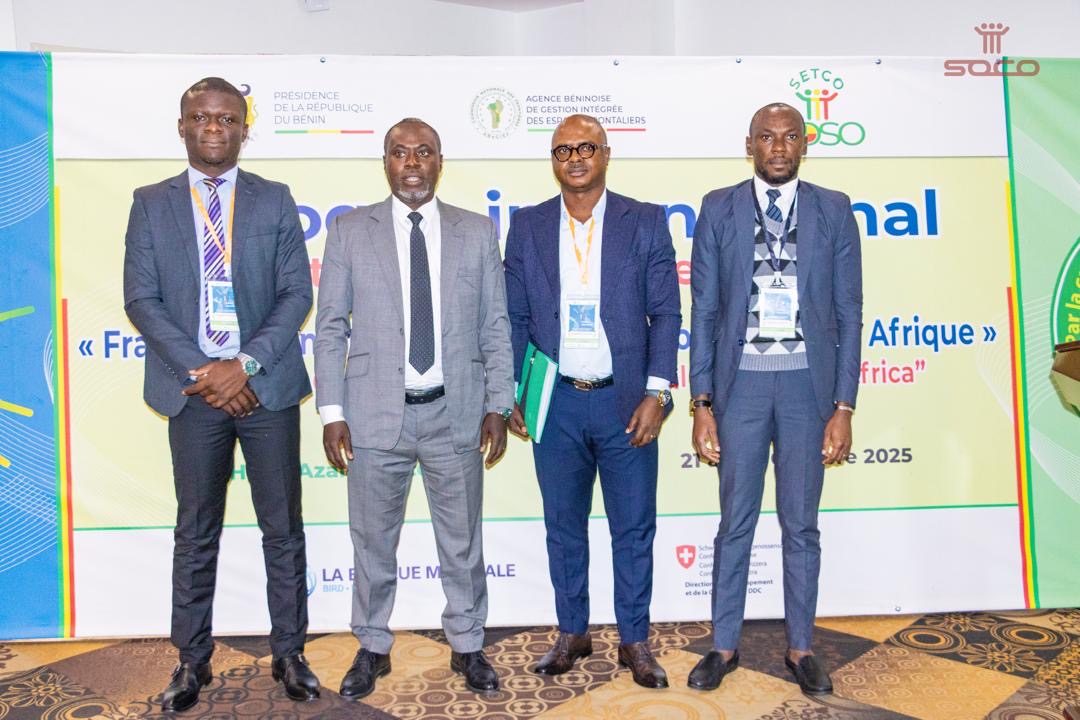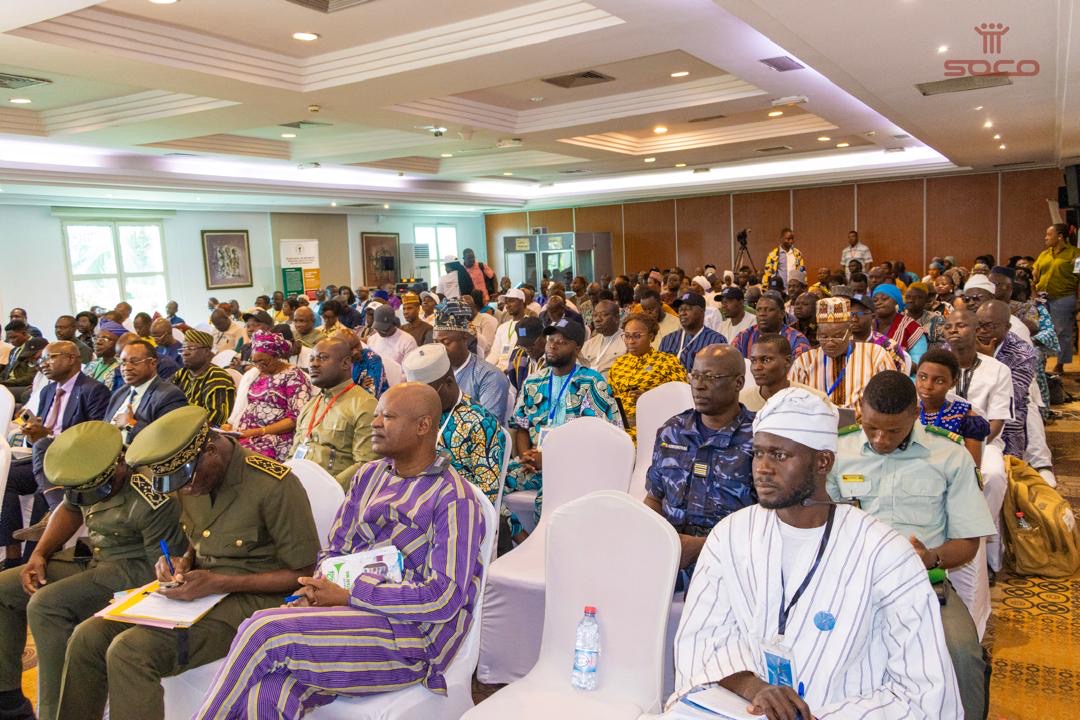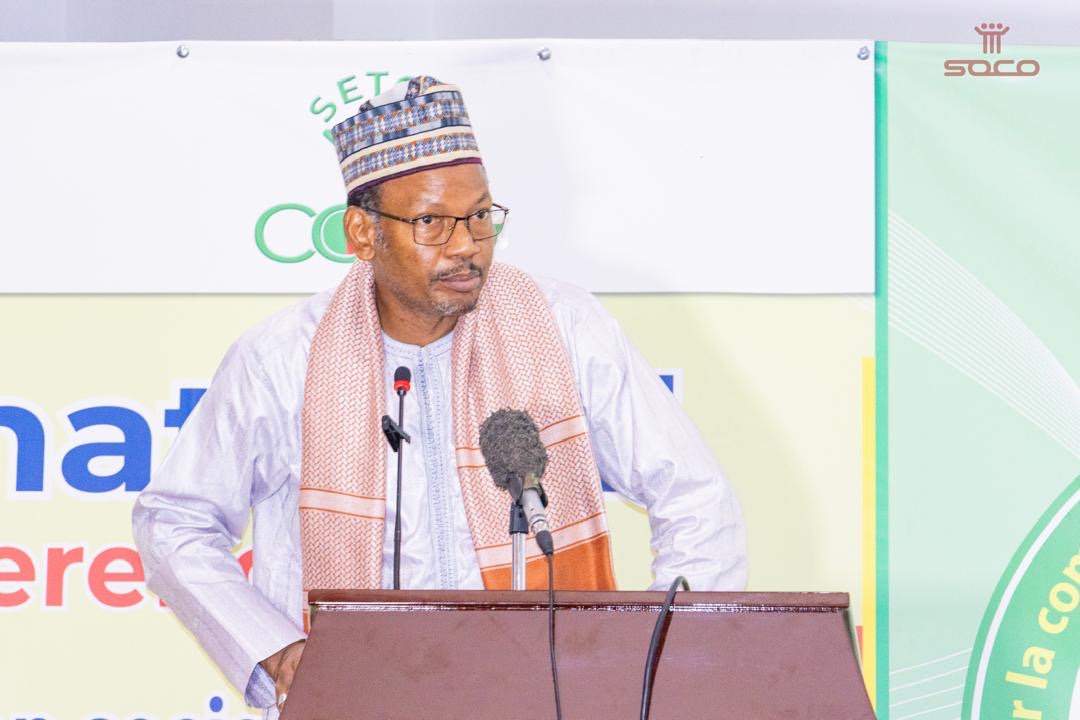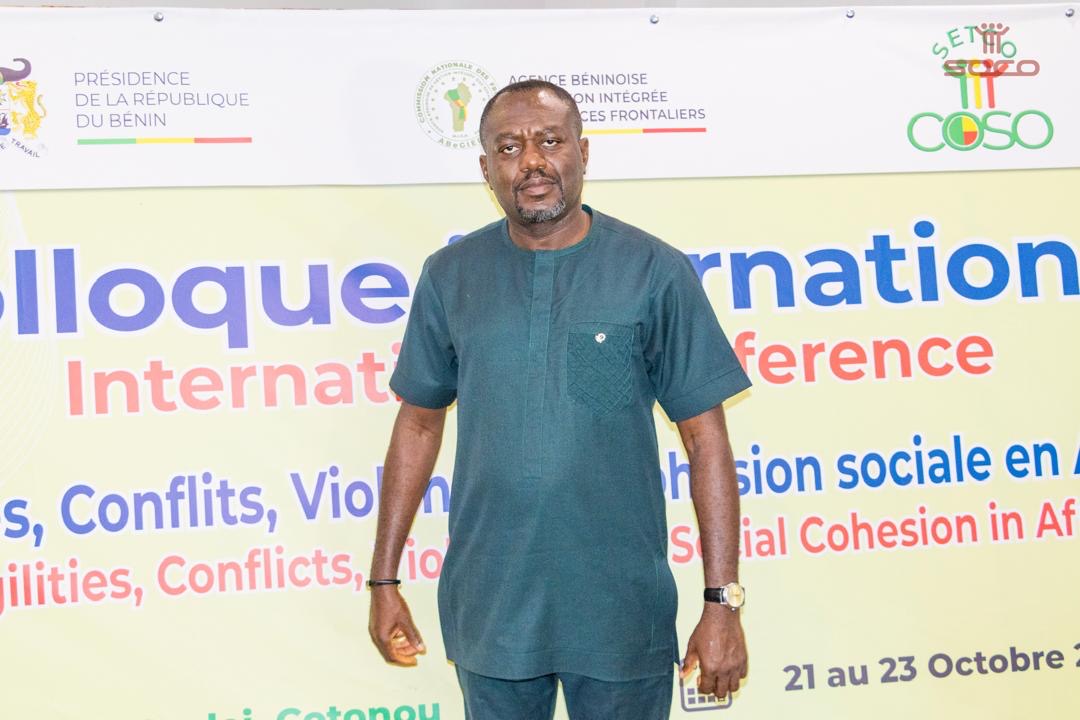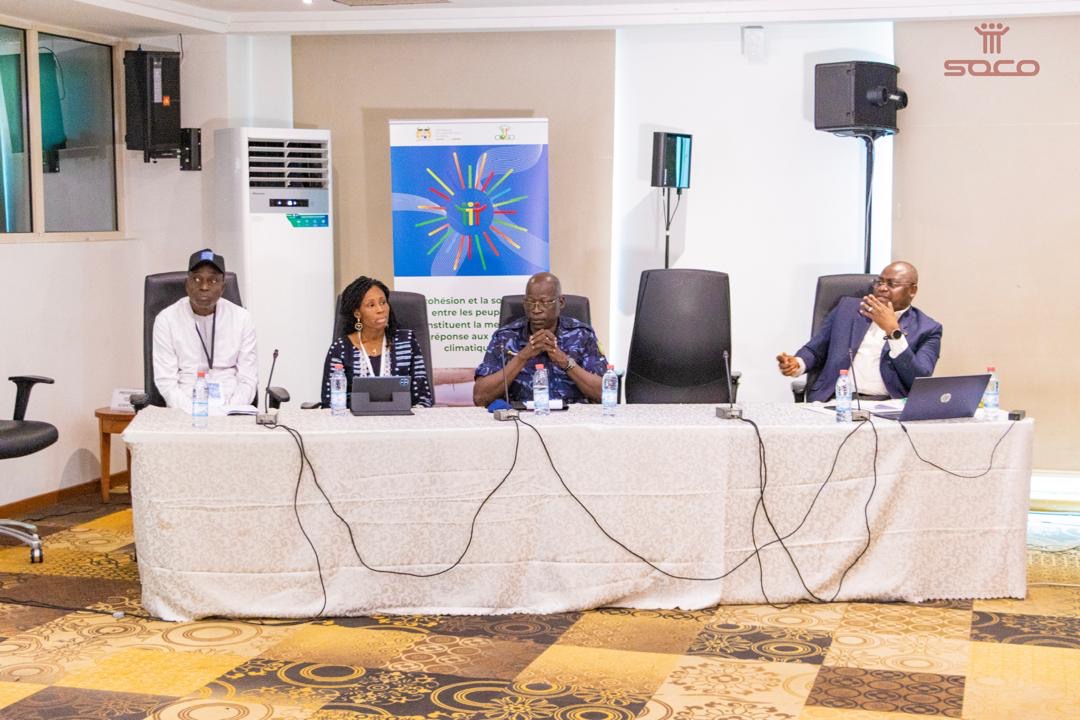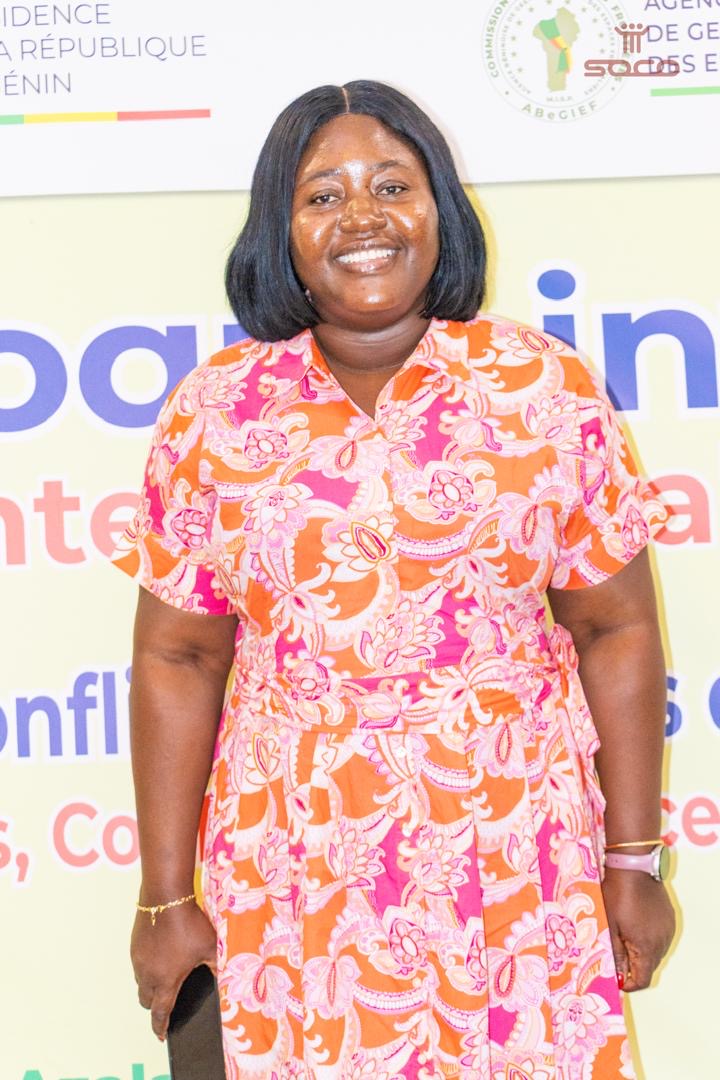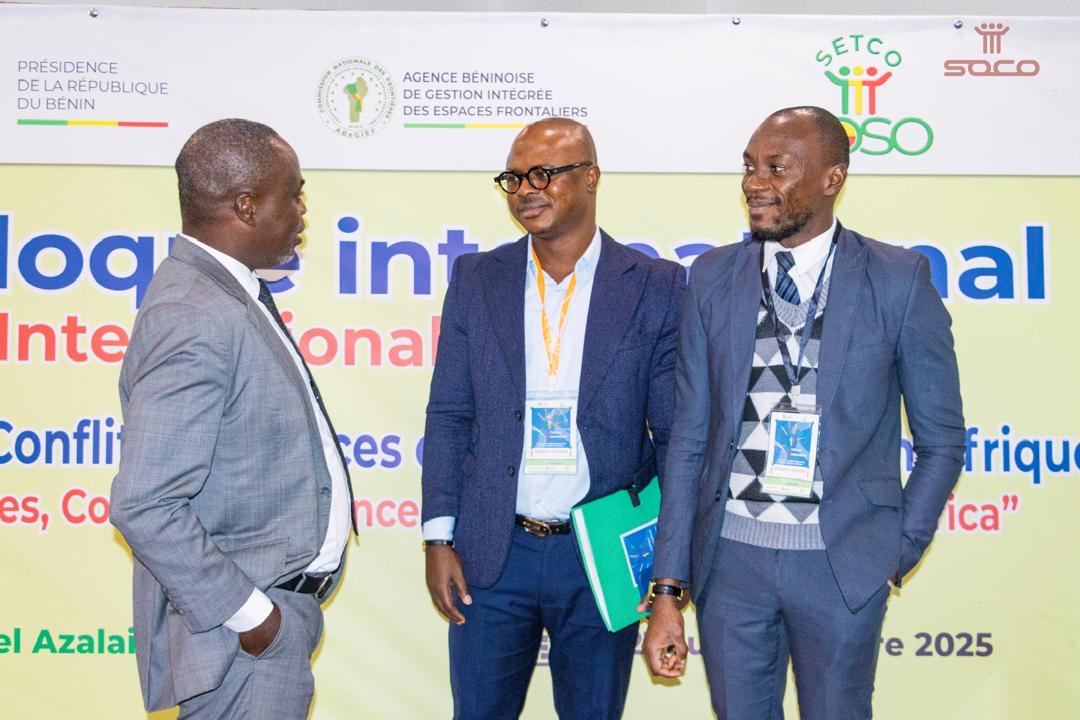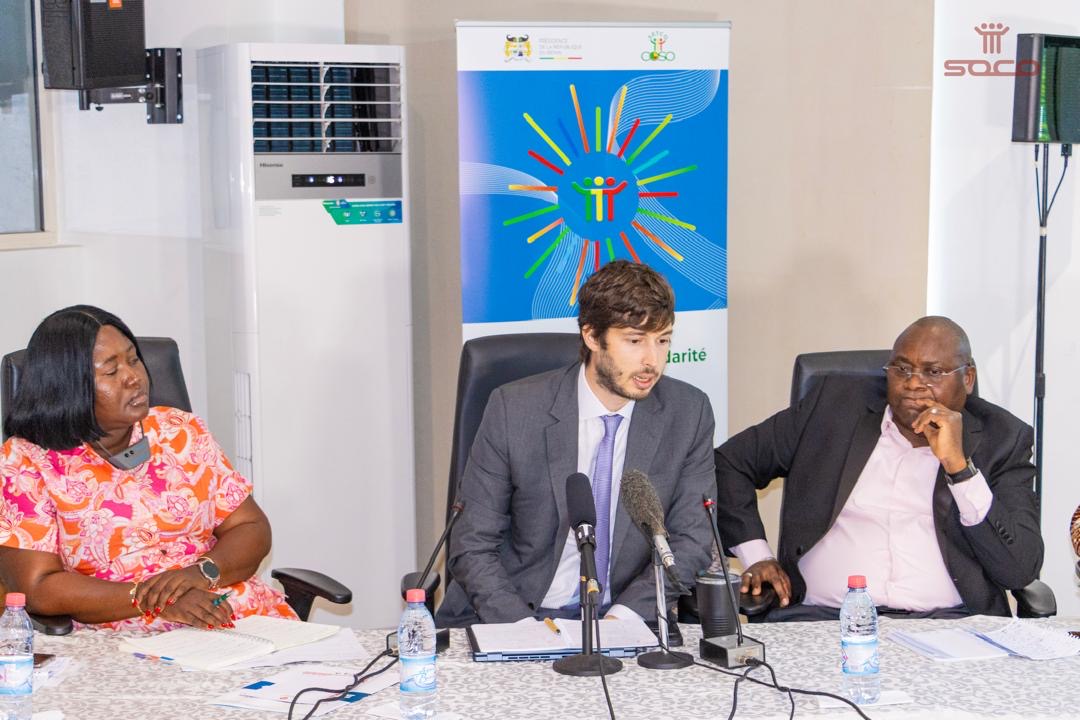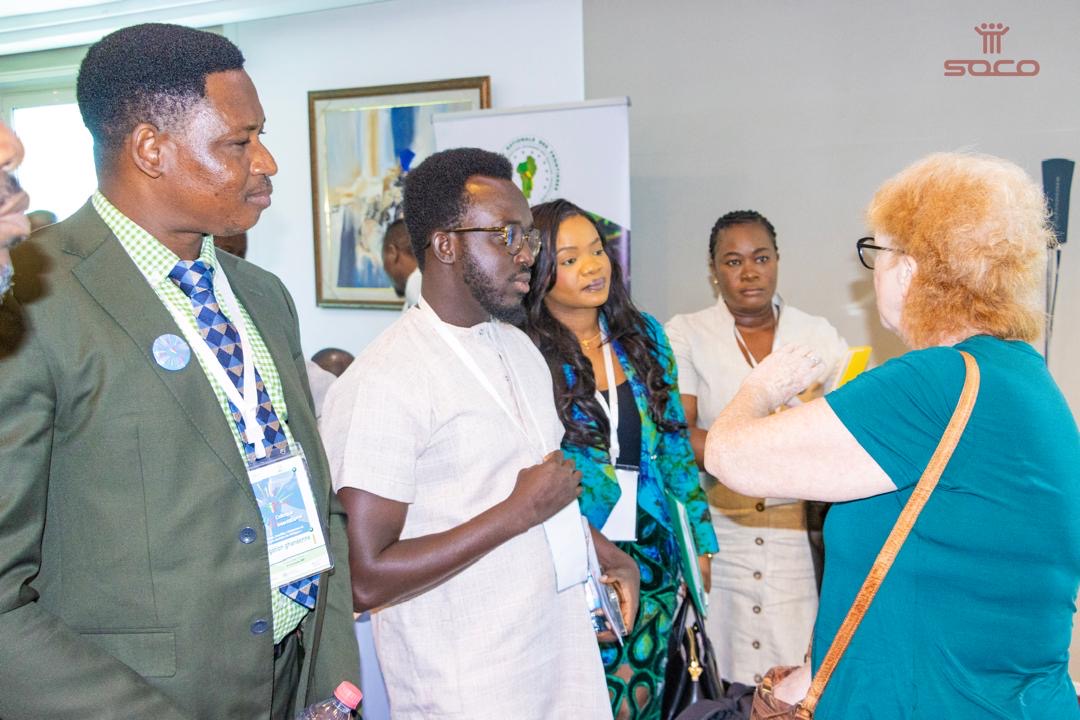The SOCO Project Ghana participated alongside regional partners from 21st to 23rd October 2025 in a three-day Research Conference on Social Cohesion held in Cotonou, Benin. The event brought together researchers, policymakers, and development practitioners from Ghana, Côte d’Ivoire, Togo, and Benin to share knowledge and foster collaboration among these four countries implementing the Gulf of Guinea Northern Regions Social Cohesion (SOCO) Project.
The Ghana delegation was led by Elizabeth Ohenewaa Agyei, National Coordinator of the SOCO Project under the Ministry of Local Government, Chieftaincy and Religious Affairs, and included Raymond Aitibasa Atanga, PhD, Lecturer at the C.K. Tedam University of Technology and Applied Sciences, Navrongo, and John Oti Amoah, PhD (Senior Research Fellow at the School of Gender Studies, University of Cape Coast). The two scholars presented research drawn from Ghana’s northern regions, focusing on how communities build social cohesion amid climate stress, economic challenges, and social inequalities.
The conference, organised by the COSO (SOCO) Project-Benin, served as a platform for countries to share research findings and field experiences on strengthening inclusion and resilience in fragile and cross-border areas. Discussions explored how traditional governance systems contribute to conflict transformation, how climate change affects local livelihoods, and how cross-border cooperation and gender-responsive planning can sustain peace.
Notable African academics took part in this conference, including Prof. Alkassoum Maïga, former Minister of Higher Education and Research of Niger; Prof. Roch Mongbo of Benin; and Prof. Baakdonyo Ismaila of Côte d’Ivoire. Their presentations on governance, identity, and peacebuilding emphasised the importance of linking community knowledge with institutional reform. Participants agreed that stronger collaboration between research institutions, local governments, and traditional authorities is essential for managing fragility and promoting stability across the Gulf of Guinea region.
Dr Raymond Atanga delivered a paper titled “Transboundary Flood Risk Management Mechanisms and Community Resilience in the White Volta River Basin.” His research examined how weak coordination and underfunded institutions undermine flood management efforts between Ghana and Burkina Faso. He called for hybrid governance models that integrate local knowledge, scientific data, and regional cooperation to improve community preparedness. “The White Volta Basin is a shared ecosystem,” he said. “To manage it well, we must blend local wisdom with science and build institutions that listen to the people most affected.”
Dr John Amoah’s presentation, “Modern Slavery and Social Protection in Northern Ghana: A Decolonised Perspective,” explored women’s livelihoods in rural communities such as Ponyentanga and Dorimon in the Wa West District. His research challenges the idea that women in informal or migratory labour are simply victims of exploitation. Instead, he highlighted their agency and resilience, noting how many rely on community-led savings and loan groups-locally known as Dagibile or Susu to support one another. “These women are not waiting to be rescued,” he explained. “They already have networks of care and cooperation that keep them going. Our policies should build on what they have, not replace it.”
The conference reiterated that social cohesion depends not only on government policies but also on the participation, inclusion, and wisdom of communities themselves. Further, it reflects the growing importance of academic collaboration in shaping practical solutions for peace and inclusion. The studies presented in Cotonou will inform future interventions and continue to strengthen partnerships for sustainable development and social stability across West Africa.
